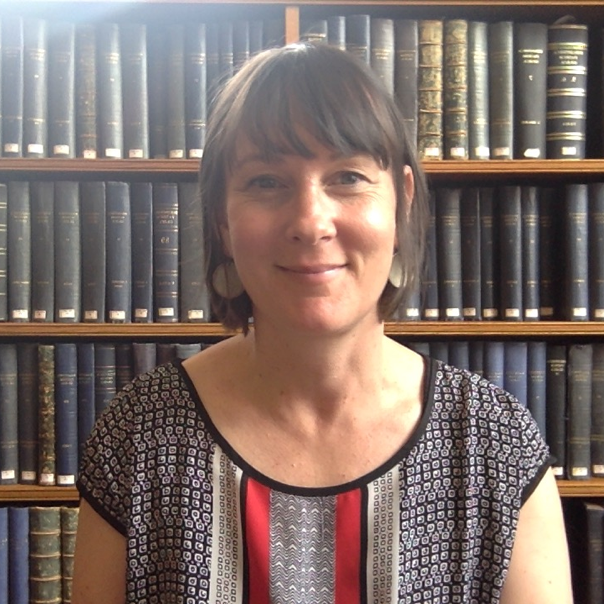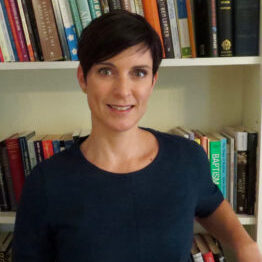Episode Transcript
[00:00:05] Speaker A: You're listening to by the well, a lectionary based podcast preaches recorded on the land of the Wurundjeri. People.
[00:00:18] Speaker B: Welcome to by the well. I'm Sean Winter.
[00:00:20] Speaker C: And I'm Monica Melanchthon.
[00:00:22] Speaker B: Welcome, Monica. Today is the 8th Sunday after Pentecost, or these are the readings for the 8th Sunday after Pentecost. And we're going to look at all four readings in our conversation today. The first is from two Samuel, chapter six, verses one to five and twelve be to 19 in the lectionary. But we're actually going to look at the broader context of two Samuel six. We'll then look at psalm 24, then some comments about Ephesians, chapter one, verses three to 14. And then finally, we'll take a look at the story in mark 614 to 29.
So, Monica, let's start with two Samuel, chapter six. David brings the ark to Jerusalem, is the title, but this is a longer story. So what's going on here? Why is David bringing the ark to Jerusalem? And how does the story unfold in this chapter, in two Samuel.
[00:01:11] Speaker C: So this text that we have for today in two Samuel six is actually part of a larger ark narrative that already begins in one Samuel. So if you read chapters four on four, five, six, and perhaps even seven, you discover that the ark was first lost to the Philistines in a war between the Philistines and the sons of, of Eli. And they lose their lives, and the ark is taken away. And then the Philistines take the ark first to Ashdod, which is one of the Philistine cities, because they think the Ark has some power, which the Israelites were gaining from. And then they realized that the Ark did have power in the sense that they were all falling sick.
The text talks about rodents and mice, which some commentators believe is some sort of a plague that hit the city. And a lot of people lost their lives. And so when you read through the following chapters in one Samuel, you see that they actually move the ark to different cities. Nobody wanted it.
And actually, it's quite interesting in chapter four, where they take it first to the temple or to the God Dagon. And they. And every morning they saw that Dagon was prostrating before the ark, and so they were really afraid of its power, and therefore they were moving it around. And there were these plagues. So to cut a long story short, the Philistines therefore leave the ark in this place called Bale Judah, according to one Samuel, or Kiriat Jarim, as in two Samuel.
And that's where it's been sitting for about 20 years. And now David has suddenly realized that the ark should be brought back because it is symbolic of the presence of God. So in order to understand chapter six of two Samuel, you need to know this history a little bit.
[00:03:02] Speaker B: Okay? So if you haven't read those chapters in one Samuel, four to seven.
[00:03:07] Speaker C: Yeah.
[00:03:07] Speaker B: Okay.
[00:03:08] Speaker C: Then you would get a little background of the story and then you will find in two Samuel, if you read chapter five. Chapter five is all about David's amassing of power, mostly political power. And you will understand that here he's now the ruler of all of Israel and Judah. He has made Jerusalem the capital.
He has squashed the Jebusites, who were the original inhabitants of, to remove the.
[00:03:38] Speaker B: Descendants of Saul, take them out of the picture.
[00:03:41] Speaker C: And he's also being recognized by the powers that be around. So the phoenician king is making an offering, a gift to him. So the entire chapter five is basically to emphasize his growing strength. And this growing strength is explained as the presence of Yahweh, the God of hosts, who is with David.
And in the middle of this, we are also told that he took on extra wives, extra concubines, and he fathered several sons. And so even his potency, you know, as a male, his virility, is integral to this power.
[00:04:20] Speaker B: The characterization of David is so fascinating in these texts, isn't it? Because it's full of all of those kind of dramatic details that coalesce around, like the heroisation, the valorization of David as this kind of highly, well, kingly stroke, masculine stroke, powerful stroke, dominant figure, warrior, warrior. But then parts of the story into Samuel that then undercut that portrayal or portray him as weak or sinful or problematic in some ways or another. So I think that's really, really interesting. But you're right here. We're right at the apex of the acquisition of power and the legitimization of power.
[00:05:02] Speaker C: Right? And so then we come to chapter six, which is now the continuing continuation of, okay, the ark is there, we should bring it back. And so David takes 30,000 men, which is a huge group. And I think we also need to understand here that the ark was something that cannot be carried on any human made transport.
[00:05:24] Speaker B: Right.
[00:05:24] Speaker C: Okay.
And so therefore people had to carry it. How big this box was. I mean, there are a lot of images out there that show it's a big thing, but anyway, it had to be carried. So he takes 30,000 men and he goes to Bali, Judah to bring the Ark of God. And then while he is bringing it back, he's dancing. He's making offerings along the way of oxen. Oxen and etcetera. And he's rejoicing and he's dancing. And then, you know, in the section that has been given to us today, there are parts of it that are missing. Right.
The ark makes a stop at a certain place and the ground is a bit bumpy and the oxen kind of lose balance. And Uzziah attempts to stop the ark from falling off the cut.
And he. But here you have the cut, obviously.
[00:06:22] Speaker B: Anyway, so the dancing of David. David's kind of celebration of the cultic religious and for him, very clearly, political significance of the presence of God in Jerusalem. That's kind of counterpointed by this story of Azar. This thing has such potency that anyone who touches it, even if from perfectly good reasons, ends up dead.
[00:06:46] Speaker C: Right. And I think in some way that the entire chapter is trying to impress upon David the potency of the ark or its capacity to do good, but also to bring death.
So David now suddenly becomes afraid of. Of the power of this ark, you know, so it's a combination of both reverence, fascination, you know, worship. I don't know what the other words might be, but all of that. But also an intense fear that an inappropriate dealing or approach or touching of the ark can cause death. So. Yeah, so.
Which I think, in a way, will ensure that people look into it with wonder, with mystery, and recognize.
[00:07:45] Speaker B: So theologically, it has associations with the idea of the kind of numinous identity of God's transcendence, God's holiness.
Like Moses going up the mountain, not able to see God. It's those kinds of ideas that are coming through.
But what you're saying is that all of that kind of religious theological symbolism and potency in the context of Sir Samuel is being drawn into the political story of David's assumption of the monarchy and ultimately the expansion of the territory of Israel, the defeat of Israel's enemies and that acquisition of political power. The two things merge in merge.
[00:08:22] Speaker C: Right. So he has the political power. Now he needs to make sure that he has religious power as well. So by bringing the ark, his whole plan to centralize worship at a temple in Jerusalem, I mean, that was the strategy. Right? So, of course, the temple hasn't been built yet. So he brings the ark and places it in a tent in Jerusalem. And so here you have this, you know, a combination of political power and the exercise of religious power.
[00:08:54] Speaker B: So David is dancing because all of this is coming together in this wonderful way.
And then after Azara has touched it and he's died, David dancing. And then we get a hint at the story, which, again, the lectionary doesn't fill in because you need to read the whole of the chapter to get the whole of the story. But even in the section that we get in verse 19, we get this reference to David's wife, to Michael, to the way in which she regards his act of dancing. And it's not straightforward. She's not affirmative of everything that he's celebrating, right?
[00:09:28] Speaker C: No, she, well, the text says she despised him in her heart, and she's looking out the window, so she's obviously not part of the festivities, you know, so we don't know if there were women also dancing, but in a sense, there could be other women who were dancing BECAUSe it was customary for women to sing and to dance and to welcome baCk, you know, warriors who have been away at war. So she looks out ThROUgh the window, and the narrator just tells us that she despised him in her heart. And if you look through the commentaries, you know, a lot of male commentators mostly have stereotyped Mikhail as a very weak woman who is perhaps jealous of David's power and strength and popularity.
So. But then she has, there are others who have tried to redeem her, saying that she did love david. ActuallY, she's the only woman who is said to have loved a man. If you look at the verb ahav in hebrew, and the subject of the verb, it's always a male who loves a woman. But here you have a woman who loves david. You know, and this was not in this text here, but earlier on, when she first eventually marries him.
And the writer there suggests that it's always also a power equation. So there she had more power by virtue of being SAUL's daughter, and david was an employee of Saul. So that is why Mikhail loves David is appropriate, okay?
Because of the power that she held. And we know that if you read through the stories surrounding Mikhail, that she helps David, you know, she informs him of Saul's plot to get rid of him and so on and so forth. And somewhere along the way, I think things changed. I mean, David was not the most exemplary of husbands. Come on, let's face it.
[00:11:27] Speaker B: Let's be honest about it.
[00:11:29] Speaker C: And any woman, I think, would be hurt by that kind of behavior. And, you know, he sends her off at one point, and then he's living with all these other women and fathering children all over the place. So if she despises him, I think it's kind of understandable. And I speak as a woman, and I don't know whether you feel the same way.
[00:11:49] Speaker B: Well, so what's interesting to me is that the text of two Samuel has this ambiguous understanding of David. So on the one hand, we have this celebration of, you know, the davidic monarchy coming into its.
On the other hand, even the narrative voice of two Samuel is deeply aware of David's frailties and fragilities and problems. So in a sense, Mikhail, at this point, is kind of stepping into that narrative perspective in over outspoken criticism of David's behavior, which isn't something that we should be condemning, but actually we should be recognizing that she's occupying an appropriately critical stance and embodying things that the text actually wants to say about all of the problems to do with the relationship between all the merging of religion and politics in an unhelpful way.
[00:12:37] Speaker C: Right. And it's not just about, yeah, it's religion, politics in the public, in the public sphere, but it's also, personally, there were issues between them. And I think she in some ways would have known or was privy to the plots and all the many strategies that David employed to rise to power, you know, and at this point, of course, Bathsheba hasn't entered the story, but we do know that David was responsible for the murder of a lot of people.
So I think in a way, she embodies, yes, this other side of the story or the other side of the critique against David. And later on, if you continue to read the chapter, you find out that David, of course, says, ah, you're jealous because God has chosen me over your father.
And then the narrator tells us that she will remain childless. Of course, again, there. There has been some conversation as to whether David intentionally did not sleep with her anymore because he didn't want to father a child who has lineage saws lineage, you see? So.
But then others will say this was the way of God punishing.
So anyway, so the story of Michal is quite sad in some ways.
[00:14:03] Speaker B: So sad. And the complexities of this text will be actually mirrored in the gospel reading that we'll look at in a bit, where this relationship between husbands and wives is kings and their wives is kind of played out in a different way. We're going to take a break, but then we're going to need to come back and look at some of the other texts, I think.
So, Monica, maybe a bit more briefly we can look at psalm 24, and then we'll just go straight into ephesians because they're both celebratory passages, and then we'll come to the gospel afterwards. So psalm 24 may be quite a well known psalm to people. I'm not quite sure whether they know it, but it's one of these processional psalms. It seems to be and is quite declamatory in its affirmations about God and about God's relationship with the earth and with God's people.
What would you like to say about the setting of this psalm and what you think is going on here?
[00:15:00] Speaker C: I think, first of all, the psalm has been identified as an entrance liturgy. So because of the fact that it's an entrance liturgy, it has often been associated with David bringing the ark to Jerusalem as well. So it's a hymn, and there's a sort of, as you said, a festive feel to this psalm. And most commentaries will tell you the psalm is made up of three parts. And you have the first part, which affirms, which is verses one and two that affirm the Lord's ownership of the earth. And why is the Lord the owner of the earth? Because the lord is the one who has created this earth, etcetera.
And then verses three to six is a question answer liturgy. So who can enter this place of worship?
And the psalm is quite clear. Those who have clean hands and a pure heart, who do not lift up, up their souls to what is false and do not swear deceitfully. So therefore, some of these requirements of entrance is not an examination of are you suitable to enter or worthy of entering? But more, it is. I think it is invitational. Okay. It is invitational to us to live up to these expectations. And I think these expectations of clean hands and pure hearts can be linked with the. With the covenant code in the book of Exodus and to passages in Leviticus as well.
And then we come to the last part, which is verses seven to ten. And this is, as one commentator will say, is a script for the ceremony, for entering the temple and asking the gates to lift up their heads so the king of glory may come in. So there seems to be a slight amount of dissonance or disconnect, because the second part of is it about ordinary people, clean hands, pure heart, and then who can come in? It's the king of glory can come in. In my mind, I was thinking as I was reading the psalm again, but the king of glory is already in the temple. In the temple. So what is this king of glory now coming in from the outside? I don't have an answer to that question, but basically, maybe this psalm is a combination of two different poems, maybe one to do with people who can enter the temple, and another one is a. Maybe a royal psalm, you know, the king who has been.
[00:17:22] Speaker B: That's right. So my memory is that some scholars suggest it's connected to this kind of covenant new year renewal ceremony where the king represents Yahweh in some significant kind of a way. And it may be. I think it's really interesting, particularly the middle bit and the dialogue. So what you're saying is it works really well as a dialogue with people asking the question who can come? And then the people answering, well, it's these kinds of people who can come, and then the priests or the leaders saying, well, those people will receive blessing, and then the people saying, that's us. We're the company of those who are seeking the. So the sense that this psalm lends itself particularly to liturgical embodiment in the life of a community or the congregation in worship would be a really interesting possibility to explore, I think.
[00:18:08] Speaker C: Yeah. I am also drawn to the fact that the king of glory is described in. In militaristic terms.
So there's a lot of war imagery there. Strong and mighty, mighty in battle and so on. So this is the warrior God or the warrior king, and therefore the connections with David, perhaps, who's welcomed into the temple.
And I think there is an ethical perspective, something that we all, as believers, need to aspire towards, to have clean hands and. And pure hearts. And that is because we, as created beings of God, are placed on this earth, which has also been created by God. So I guess for a sermon, you can. If you want to focus on this particular text, one can bring in that.
[00:19:06] Speaker B: The qualifications for worship, what kind of posture or stance towards worship is an appropriate one.
And then people will need to decide what they want to do with the militaristic language, which, of course, can be interpreted in a number of different ways, I think, okay, we're going to move testaments. So let's talk a bit about Ephesians, chapter one.
I mean, I guess the first thing that I wanted to say about this is that it shares with the psalm the sense of being a celebratory declamation in some sense or another. There's a kind of hymnic confessional quality to it.
Ephesians is a tricky text, and actually, this is the first week of a number of weeks in the lectionary where Ephesians is the epistle reading.
And it seems to me that I guess I just wanted to say a few things about what I think is going on. In Ephesians, and then you can ask me questions about perhaps the particular verses. I mean, Ephesians is an incredibly letter and it's dense in good ways, highly theological, highly compressed.
This passage from today is actually one sentence in Greek, famously summarized by one german scholar in the past as the most monstrous sentence conglomeration I have ever encountered in any greek literature. So that's Edward Norden.
[00:20:33] Speaker C: I see.
[00:20:34] Speaker B: But Ephesians is like that. It's highly compressed with phrase after phrase and word after word. But broadly speaking, it conforms to the pattern of a pauline letter. There are three chapters of what we might call theology and doctrine, and then there are three chapters of ethics and behaviour and kind of community advice.
The basic idea, though, for the whole of Ephesians is that if you understand the nature of God's saving work, which has now been revealed, ephesians describes it as a mystery that's been revealed in that apocalyptic sense.
If you understand that, let's call that the kind of vertical horizon between God and humanity, then what that does is reorient the way in which you relate to your past life and your past behavior and live into a new future.
[00:21:27] Speaker C: And your neighbour, your community, and then also.
[00:21:30] Speaker B: Then to your neighbour and your community.
The two main ethical consequences of understanding the mystery of the gospel in Ephesians are the transition from the old life to the new life, and the overcoming of the boundaries and the barriers between different communities, particularly, of course, the communities of Jew and Gentile in the early christian communities. So what you get is this idea of an ecclesiology, a vision of the church that is marked by holiness, on the one hand, from old life to new life, and then unity on the other, transgressing and overcoming these boundaries.
But the impetus for both of those things is, do you really understand what it is that God has done for you?
Ephesians one is really, as I said, a single sentence that spirals and torrents with wave after wave or current after current of language about what it is that God has done.
And in a sense, I mean, you could go through and kind of pick out every single phrase and verse, but in a sense, they're just cascading on top of each other. And the most important thing is to get a sense of the vibe and the significance of that description of what God has done.
It's not a text, in my view, for verse by verse exposition. It's a text for conveying something of the. The thrill and the wonder of understanding the mystery of God's salvation.
[00:23:01] Speaker C: Yeah, and God's salvation through Jesus Christ.
[00:23:03] Speaker B: Through Jesus Christ.
Almost every verse has a reference to things being done in Christ, in him, in the beloved. You'll find that almost every verse has a reference to Christ one way or another. That's right.
[00:23:18] Speaker C: Yeah. I think connections can be made with the psalm as well. You know, it's like. Like if you are in a relationship with God and you affirm that this is what. This is who God is, then your life should image that relationship not just vertically, but also horizontally.
[00:23:40] Speaker B: As with all of Paul's letters, what you get here is in kind of shadowy or summary form. Very briefly, you really get a hint at the themes that are going to be unpacked in the rest of the letter. So it's a good place to start to understand Ephesians. Then there are many other weeks in the lectionary where you can talk about it in detail.
[00:23:59] Speaker C: Yep, I understand the denseness.
[00:24:08] Speaker B: Sorry, Monica, I cut you off there, but we need to move to the gospel reading for today. Mark, chapter six.
What a passage, eh?
[00:24:18] Speaker C: Yes. What a passage.
Yeah, I mean, I was thinking how the lectionary, the ones who prepared the lectionary, seem to be shielding the reader from death and violence. In two Samuel, by cutting out the Uzziah part, where God comes across as the one who brings death upon an individual. And yet here in this particular passage, you have a woman who is instrumental in.
[00:24:54] Speaker B: You've got the full gory detail.
It's pretty much a horror movie. It's one of those movies that starts off with everyone feeling a bit normal, and then tension builds and builds and then it explodes in this gory kind of conclusion.
I mean, this is my own kind of cultural background, but there's a very famous opera by Richard Strauss called Salome, which is the retelling of the story. And in modern productions, it always ends with the soprano holding the head of John the Baptist, dripping blood all over her perfect white dress, kissing his mouth because she's fallen in love with him. Like it's a. It's a schlock horror kind of story. And the drama of it is there for really interesting reasons, I think, in. In Mark's gospel, one of which is to do with Mark's gift as a storyteller, is able to do this. But the other, I think, is to understand why does Mark stop? A story about Jesus sending the twelve out on a mission sends them out, herod kind of hears about it in some vague sense and then stop. And then you get 15 verses of backstory and explanation before the disciples, then come back I think that's a really interesting question that a preacher might explore. What does this story have to do? We're thinking about christian discipleship and christian mission, right?
[00:26:14] Speaker C: Well, that's a good question, and I haven't thought about that, really.
I have just paid attention to the story as it is and learned that there are some slight differences between the markan version and the matthian version.
But I guess some commentators, particularly women, have called attention to.
To this mother daughter relationship. And it's one of the few instances, I think, maybe the only one, where you actually have a conversation between a mother and a daughter. And unfortunately, it's a really sad story and not a very pleasant one.
[00:26:54] Speaker B: It's not a very pleasant one.
And, I mean, there's even confusion about who the mother is and who the daughter is. There are significant texture issues at various points, which is to do with the fact that almost all of these people were called Herod, and almost all of the people, the women children that they had were called herodias, and then the daughters married their uncles.
So Herod and Herodias is a constant kind of combination of marriages in the herodian family.
And that's why we get the complication. The name Salome, which we understand the daughter's name to have been, actually comes from Josephus. So this is one of the few stories where we actually have a completely independent version of the story, which has some differences, but from outside of the New Testament, but which basically establishes, I think, it's historical veracity that John the Baptist was executed by Herod Antipas.
What do you think?
What contribution, then, do the women make to the story? And how does their voice help to drive the drama, or what does it point the reader to?
[00:28:05] Speaker C: Well, first of all, I mean, it's a disturbing story, as I said already, and I think it's disturbing because of the fact that here is a woman who has some aspiration for how she wants to live her life. Of the critique offered by John the Baptist, the only way she could see herself get out of this is to have him killed, you know, but death and murder seems to be quite a regular occurrence in the scheme of things. I mean, if you think you've been reading the book of Esther, for example, and how just, okay, you don't, you know, someone's plotting against the kill kingdom. Hang him, do this, kill them.
[00:28:49] Speaker B: So there are very explicit allusions to Esther in this story. So the notion that she was trying to please him and that he offers her half of the kingdoms, those are both direct intertextual illusions. Back to the story of Esther. But, of course, Esther's behavior is regarded positively by the narrator, whereas here the characterization is negative.
[00:29:09] Speaker C: Yeah, well, because maybe because they were. They were not followers of John the Baptist.
[00:29:15] Speaker B: Well, and I think so the other dimension to it is the counterpoint in the markan version is that Herod is almost absolved of responsibility. Like, he kind of. He's weak, but he's not malicious.
[00:29:28] Speaker C: Right. Right.
[00:29:30] Speaker B: Whereas when Josephus tells the story, he's very clear. It's a calculating political decision by Herod. John the Baptist is regarded as some kind of political threat. He has him executed without a buy your lead.
This is a reminder, or is similar, of course. And this is the key to this story, to the story of Jesus in relationship to the roman prefect Pontius Pilate, where the gospels have pilate prevaricating, not quite sure whether to do it or not, kind of absolving him of some of the responsibility. Whereas everything we know about Pontius Pilate historically would suggest that he wouldn't have given a. By your leave to executing a religious.
[00:30:10] Speaker C: Yeah, that's very interesting. And I guess, in a way, if, you know, I mean, I find that explanation quite appealing. And it's possible here you have two women then being used.
[00:30:22] Speaker B: That's right.
[00:30:23] Speaker C: Okay. It's not to say that these women had no agency and had no dreams or aspirations, but yet they're here being used by a male. Because I think in one case, we hear that Herod was actually afraid of John the Baptist and influence and was afraid to kill him. So this gave a perfect excuse to have him killed. So, yeah, I mean, the more traditional interpreters will talk about the importance of parenting and the influence that parents have over their children and how they can use their children to their own ends and so on. I'm not going that route necessarily, but I.
The maternal role is quite essential here to the story which leads Salome to make the request that she does. And they both succeed, I guess.
[00:31:17] Speaker B: Yeah, I think the mark and storytelling kind of takes over, and I think the women do become so they come into negative view precisely because Mark pushes herod into the background as someone who's kind of prevaricating. I think the crucial thing about this passage in relation to its setting in the Gospel of Mark is the question of how effectively early Jesus missionaries understood the thing that made sense of or the thing that would accompany the practice of their mission. So Jesus sends them out, and then we have this deeply hostile story of the execution of Jesus cousin, someone who was aligned with Jesus, who had baptize Jesus. And it does it in a way that absolutely foreshadows the story of Jesus own execution.
So if you look at the final verse in verse 20, what is it? Verse 29, we have this very thing.
When his disciples heard about it, they came and took his body and laid it in a tomb.
Almost identical words later on in Mark 15 about the burial of Jesus. There are other linguistic connections as well between the passion narrative and this story. So I think the idea is that we're invited to think about a theme that from Mark eight onwards will become really, really important, which is faithfulness, discipleship, doing the things that Jesus asks us to do. We'll always be accompanied by and only make proper sense in the context of a story of suffering, hostility, persecution from another power.
[00:32:58] Speaker C: Yeah, but what was interesting for me is also that herodias, that's the wife, you know, Philip's wife, takes exception to John the Baptist because he critiqued her living with her brother in law.
And it's not a huge. It's a moral issue. Right. And it's perhaps not a moral issue in todays world. I dont know how many Australians would be offended by that necessarily, but in some cultures it would be an issue, I suppose. But that kind of domestic issue becomes a political.
[00:33:39] Speaker B: Yeah, I mean, arguably John the Baptist plays the role here that Mikal plays in the samuel narrative, kind of pointing and saying, that's not right. What you're doing isn't right. This isn't how it's supposed to be, right.
[00:33:52] Speaker C: Yeah, yeah, that's. It's really. Well, for me, the personal is political.
[00:33:58] Speaker B: The political is personal.
And so don't preach about these stories, don't tell these stories without touching on the politics that are present within them and the way in which they might think about. Help us to think about the relationship between faith and the political realities of today. Monica, as usual, it's been great talking to you. Thank you so much.
[00:34:16] Speaker C: Thank you, Sean.
[00:34:20] Speaker A: By the well is brought to you by pilgrim theological College and the Uniting Church in Australia. It's produced by Adrienne Jackson. Thanks for listening.






